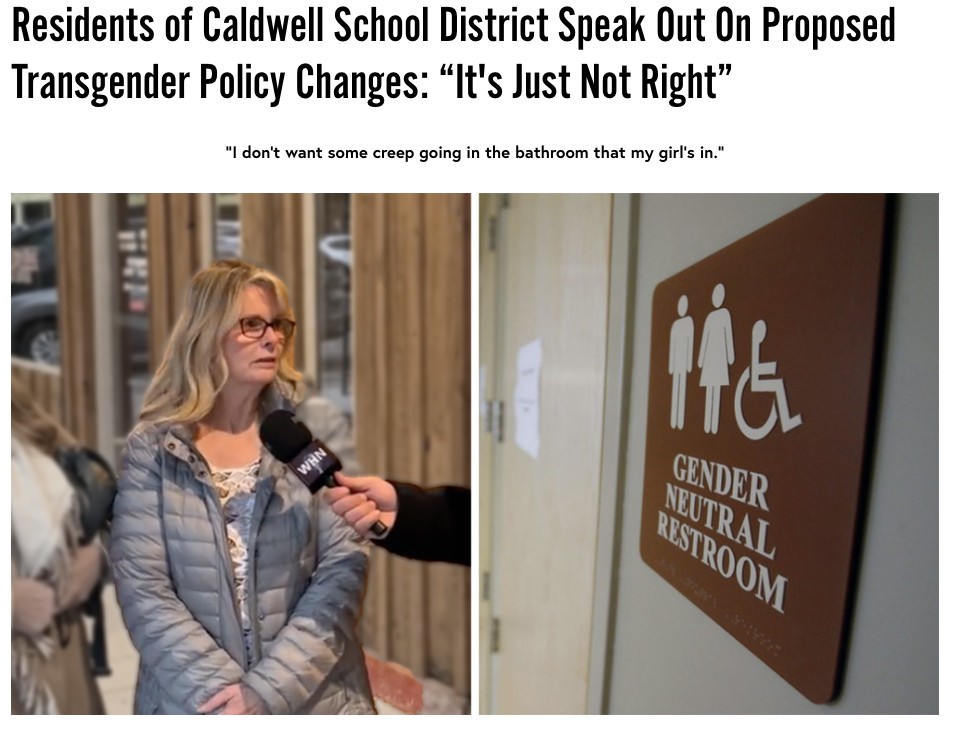Caldwell School District Tables Controversial “Gender Identity” And “Sexual Orientation” Policies Pushed By Idaho Board of Education
Caldwell School District has been mired in controversy over new policies on "Gender Identity” that the board was preparing to implement. The policies are widely opposed by members of the community, and provoked an outcry from concerned parents and residents of Caldwell, Idaho at the January meeting of the Board of Trustees.
Now, a new bill was recently introduced into the Idaho Legislature that will have a significant impact on the Idaho State Board of Education’s controversial policy 1081 on “Gender Identity” and “Sexual Orientation,” that Caldwell was attempting to implement.
SB 1100 lays out statewide norms on bathroom policies by creating a new chapter in Idaho Code titled Protecting the Privacy and Safety of Students in Public Schools.
The proposed law says “Requiring students to share restrooms and changing facilities with members of the opposite biological sex generates potential embarrassment, shame, and psychological injury to students, as well as increasing the likelihood of sexual assault, molestation, rape, voyeurism, and exhibitionism.”
The bill also defines "Sex" as “the immutable biological and physiological characteristics, specifically the chromosomes and internal and external reproductive anatomy, genetically determined at conception and generally recognizable at birth, that define an individual as male or female.”
As a result of this proposed legislation, the Idaho State Board of Education’s policy 1081 on “Gender Identity” and “Sexual Orientation” will become illegal under Idaho law, and need to be changed.
As a result of this, Caldwell School Board has “tabled” any further discussion of adopting this policy.
Last month, the Caldwell School Board of Trustees meeting was mired in controversy and chaos, when hundreds of parents opposed to the policy showed up to voice their concerns.
If passed, SB 1100 will affect over 60 School Districts in Idaho that have already adopted the controversial policy.
We encourage concerned parents and citizens to make their voices heard on this matter, using our Legislative Toolkit, and sending an e-mail to the Senate Education Committee, and your local representatives.






